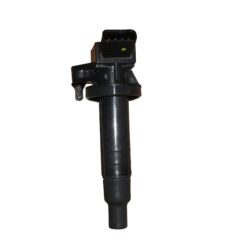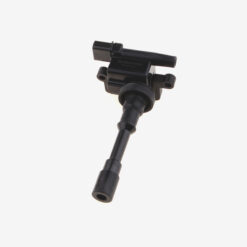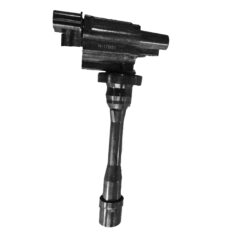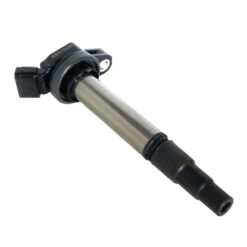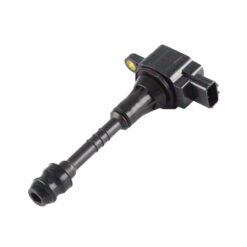The ignition coil is an important component of the ignition system in your vehicle. It’s responsible for transforming the low voltage from the battery into the high voltage necessary to create the spark that ignites the fuel in the engine.
An ignition coil can fail for several reasons, and here are some of the most common causes of a faulty ignition coil:
- Age: Ignition coils can wear out over time, the lifespan of an ignition coil can vary depending on the make and model of your vehicle, they typically last between 60,000 and 100,000 miles. After years of use, the insulation around the coil can become brittle and crack, leading to arcing and a loss of power.
- Heat: Excessive heat can cause an ignition coil to fail prematurely. This is especially true in vehicles with high-performance engines, where the coil may be subjected to higher temperatures than normal.
- Moisture: Moisture can also damage an ignition coil. This is particularly true in humid climates or if the vehicle is frequently exposed to rain or snow. Moisture can corrode the coil’s internal components, causing it to fail.
- Vibration: Vibrations can cause the ignition coil to become loose or disconnected. This can result in a loss of power or even complete failure.
A faulty ignition coil can cause several issues, including:
- Engine Misfires: One of the most common symptoms of a faulty ignition coil is engine misfire. This occurs when the coil fails to provide enough voltage to the spark plug, causing the engine to skip or misfire.
- Rough Idle: A faulty ignition coil can also cause the engine to run rough at idle. This can lead to a noticeable shake or vibration in the vehicle.
- Difficulty Starting: If the ignition coil is failing, the engine may have difficulty starting or may not start at all. This is because the coil cannot provide the necessary voltage to ignite the fuel.
There are several things you can do to prevent and fix ignition coil issues:
- Perform Regular Maintenance: Regular maintenance can help prevent ignition coil issues. This includes things like changing the oil and air filters, replacing worn spark plugs, and checking the ignition system for signs of wear.
- Keep Your Engine Clean: A clean engine runs cooler, which can help prevent ignition coil failure. Make sure to keep your engine clean and free from debris and buildup.
- Avoid Extreme Temperatures: Try to avoid exposing your vehicle to extreme temperatures, such as extreme heat or cold. This can help prevent premature ignition coil failure.
- Replace Worn Components: If you notice any signs of wear on your ignition system, such as worn spark plugs or damaged wiring, make sure to replace them promptly with high-quality replacement parts. This will help ensure the longevity and reliability of your vehicle’s ignition system.
Don’t wait until it’s too late! With the right parts and proper maintenance, you can keep your vehicle running smoothly and avoid costly repairs down the road.
Find out the ignition coil for your vehicles now! 👇🏼
Like our tech tips? Subcribe now for more updates!
 Stay Connected with Us!
Stay Connected with Us!
- Follow us on PartsLINQ(@partslinq)• Instagram
- Follow us on PartsLINQ | Facebook

